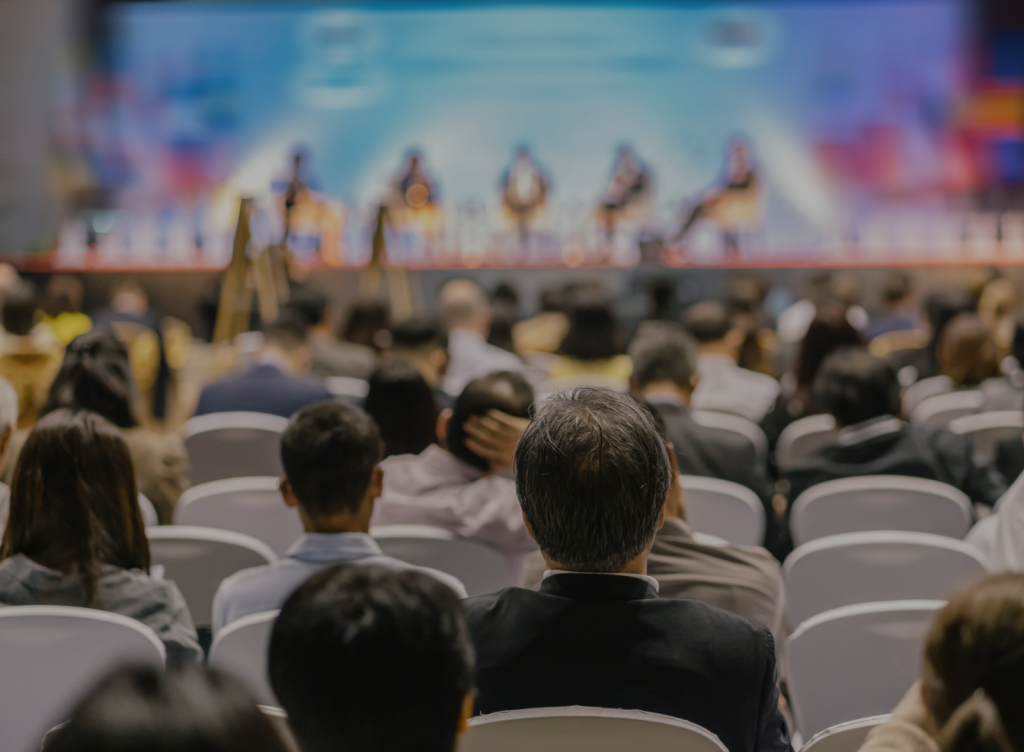In the rapidly evolving landscape of event planning, sustainability has emerged as a central focus. Event organisers are increasingly turning to innovative technologies to not only enhance the attendee experience but also to significantly reduce the environmental impact of their gatherings. At the forefront of this green revolution is the implementation of digital twins — a technology that offers far-reaching benefits, including the reduction of in-person recces, precise understanding of material requirements, and accelerated planning processes.
In this blog, we’ll explore how digital twins are transforming event planning, fostering sustainability, and paving the way for a more eco-friendly future. But first, let’s understand why sustainable events are necessary.
In the current global landscape, the imperative for events to be sustainable has become more critical than ever. With an increasing awareness of environmental challenges and a growing commitment to corporate social responsibility, organisations and event planners are under heightened scrutiny to align their activities with sustainable practices. Sustainable events minimise their ecological footprint and resonate with environmentally conscious audiences, fostering positive brand perception. Incorporating eco-friendly practices, right from reducing waste to optimising energy usage, not only contributes to the well-being of the planet but also positions events as responsible contributors to a sustainable future. In essence, sustainability is no longer an option; it is an essential element for the success and relevance of events in today’s conscientious world.
Virtual Venue Exploration
Digital twins are ushering in an era where in-person venue visits become obsolete, sparing the environment from the carbon footprint associated with extensive travel. Planners, armed with virtual replicas, gain not just an understanding of layouts and lighting but also contribute to sustainable event practices by eliminating unnecessary travel. This revolutionary shift reduces the ecological impact and also enhances the efficiency of event preparation, setting a new standard for environmentally conscious planning.
Real-time Collaboration and Decision-Making
In the realm of event planning, digital twins redefine collaboration, fostering real-time engagement irrespective of geographical distances. This not only eliminates the necessity for frequent in-person meetings but also serves as a sustainable solution by curbing travel-related emissions. The prompt decision-making facilitated by virtual collaboration accelerates planning timelines while also ensuring that events come to life with heightened efficiency, underscoring the commitment to minimising environmental impact in every stage of event execution.
Event Mockup Builders
Integrating event mockup builders into the planning process not only reduces the carbon footprint but also revolutionises the way events are conceptualised. By virtually assessing various setups, planners can identify optimal configurations, leading to a significant reduction in material waste. This streamlined approach not only aligns with eco-friendly practices but also accelerates the planning timeline, contributing to a more sustainable and efficient event execution. Event mockup builders emerge as invaluable tools, not just in minimising environmental impact but in shaping the future of sustainable event planning.
Optimal Resource Utilisation
Understanding material requirements with precision extends to optimal resource utilisation. Digital twins simulate the usage of resources such as banners, flooring, and promotional materials, preventing overordering and reducing unnecessary waste. This fine-tuned approach to resource management contributes to sustainability by minimising the ecological footprint associated with excessive production and disposal of event-related materials.
Carbon Footprint Analysis
Digital twins provide a platform for detailed data collection, offering insights and enabling event planners to assess the carbon footprint of various event elements. Planners can analyse the environmental impact of different setups, transportation choices, and energy consumption patterns. Armed with this data, organisers can make informed decisions to minimise the overall carbon footprint of the event, from the planning stages to the execution phase.
Continuous Improvement and Sustainable Practices
The data-driven insights provided by digital twins support a continuous improvement mindset. By analysing historical data on energy usage, material consumption, and waste generation, event planners can identify opportunities for sustainable practices. This includes optimising transportation routes, adopting energy-efficient technologies, and implementing waste reduction strategies. The iterative nature of digital twin analysis ensures a commitment to ongoing sustainability improvements in future events.
Remote Engagement and Inclusivity
While the benefits of digital twins for sustainability are evident, addressing challenges related to remote engagement and inclusivity is crucial. Ensuring that virtual collaboration tools are accessible to all stakeholders and that digital interfaces are inclusive is essential. This not only maximises the inclusivity and effectiveness of digital twin technologies but also reduces the need for unnecessary travel, contributing to a more sustainable and globally accessible event planning process.
Long-term Environmental Impact Assessment
Digital twins can extend their sustainability impact beyond the immediate planning stages. Planners can use historical data collected using digital twins to assess the long-term environmental impact of events. This includes evaluating the ecological consequences of different venue choices, recurring events, and overall event practices. By understanding the long-term environmental implications, organisers can implement strategies to further enhance sustainability in future events.
As the events industry continues its journey toward sustainability, digital twins stand out as a powerful enabler of change. From reducing the need for in-person recces to providing an accurate understanding of material requirements and accelerating planning processes, digital twins are transforming the way events are conceptualised and executed. By leveraging the efficiency and insights offered by digital twins, event organisers are minimising their environmental impact and setting a standard for a more sustainable, efficient, and impactful future in the events industry.
Digital twins are not just a technological advancement; they represent a paradigm shift toward sustainable practices in event planning. As the technology becomes more accessible and its capabilities expand, the potential for reducing the environmental footprint of events becomes even more significant. Embracing digital twins is not just a step towards efficient planning; it’s a visionary leap into a future where events are not just memorable and impactful but also gentle on the planet. As the events industry pioneers this sustainable path forward, it has the opportunity to lead by example, inspiring change, and shaping a more environmentally conscious future for event planning. To learn about the cutting-edge features and capabilities of the Spalba platform in revolutionising event planning, please get in touch with us.



